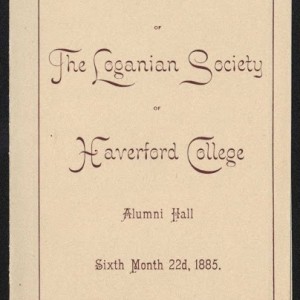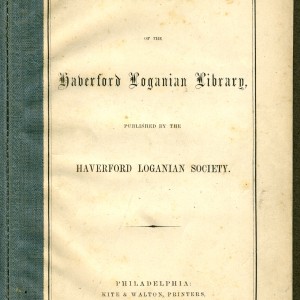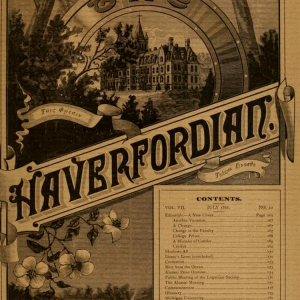“The Loganian Society itself is an instance of the advantage of leading young minds to self-culture, and of the interest they take in, and profit they reap from all that proceeds from themselves… It is the experience of all colleges, and indeed of all education, that self-culture is at last the highest culture.”
— Loganian Society Papers
Literary societies located an intersection between curricular interests and current events. Even with faculty presence (and perhaps nudged along by it), students undertook the organizational labor of running the society and its various responsibilities including keeping diligent records of their finances and creating their own lending libraries.
Societies followed the flat organization of a Quaker meeting as they were spaces where hierarchies of were dismantled (at least to an extent). Knowledge and expertise were valued but the contribution of such knowledge or “truth” to the larger community, even more so. For students, literary societies leveled authority. As the papers from the Loganian Society note:“[The Loganian Society] was thus designed to place the teachers and students on a footing of nearness and equality; making the Society a democratic institution in nature. On its floor no ipse dixit was infallible; the learned professor of mathematics could there assert no problem without proof; and even the authority of our leader in Virgil or Medea could be disputed.”
From literary publications to the society papers, it is clear that students found , in these places, modes of engaging with and refining their moral work, with deep roots in the College foundations. It is in these spaces where students honed their voices to be become leaders, especially in regards to current day social issues as demonstrated by the speeches given by students in the Loganian Society’s yearly meeting.
Rufus Jones identifies a turn in the 19th Century towards student agency :“It was a new idea then that students had anything to say about the kind of college, or the kinds of classes that were to be provided for them.They were supposed to be passive recipients of the intellectual food that was believed to be good for them, and they were to be ‘seen and not heard.’ We challenged that ancient theory and claimed a voice.” The literary societies become a place, in which students moved beyond “passive recipients” and readers whose commentary remained in the margins.





